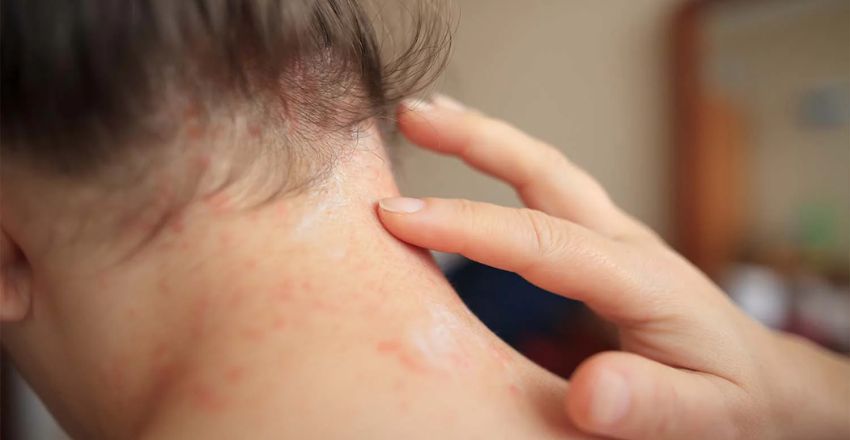Contact Info
-
Indirapuram: 080768 46266
-
Noida: 088105 60369
Anugraha Skin
Seborrheic dermatitis is a common skin condition that leads to itchy red patches, flaky scales, and dandruff. Depending on its severity, it may be managed with home remedies or prescribed treatments. This condition is often diagnosed by a dermatologist who can provide a personalized treatment plan. At Anugraha Skin & Laser Clinic, we offer comprehensive and effective seborrheic dermatitis treatment in Noida.

Seborrheic dermatitis is a non-contagious, manageable skin condition that commonly affects areas with high oil production, such as the scalp, face, upper chest, and back. It leads to red, irritated patches with greasy scales and flaky white or yellowish crusts. When it appears on the scalp of adults or teenagers, it's commonly referred to as dandruff (pityriasis capitis), while in infants, it is known as cradle cap. The condition is often seen in areas rich in sebaceous (oil) glands, including the eyebrows, behind the ears, around the nose, and under the breasts.
Seborrheic dermatitis is a chronic condition that can flare up periodically and typically responds to treatment, but it may not go away completely.
Approximately 11% of people experience seborrheic dermatitis. It most commonly affects infants under 3 months and adults aged 30 to 60. Men are more likely to develop the condition than women. Individuals with naturally oily skin, a family history of psoriasis, or those living in cold, dry environments are at higher risk. Although the weather doesn't cause seborrheic dermatitis, cold, dry conditions can exacerbate it.
The precise cause of seborrheic dermatitis remains unclear, but several factors are believed to contribute to its development. These include an overgrowth of a yeast called Malassezia, hormonal changes (especially an increase in androgens), elevated skin lipid levels, an inflammatory response, and genetic predisposition. Factors that may trigger or worsen the condition include stress, cold and dry weather, oily skin, alcohol-based lotions, and a history of other skin disorders like acne, rosacea, or psoriasis.
Cold, dry air can worsen seborrheic dermatitis, particularly in winter. However, the condition tends to improve in warmer months, as sunlight (UV-A and UV-B rays) helps reduce yeast overgrowth. Still, it’s important to be cautious of sunburn.
Seborrheic dermatitis usually requires treatment in teenagers and adults, as it typically does not resolve on its own. Treatment varies based on the affected area and severity of the condition.
Scalp Treatment for Seborrheic Dermatitis For infants with cradle caps, the condition often resolves on its own between 8 and 12 months but can be managed with gentle baby shampoo. Gently massaging the scalp with a soft brush can also help. If symptoms persist or cause discomfort, pediatricians or dermatologists may prescribe medicated shampoos or lotions.
Facial and Bodily Treatments For seborrheic dermatitis on the face or body, topical antifungals, corticosteroids, and calcineurin inhibitors are commonly used.
While seborrheic dermatitis cannot be fully prevented, maintaining good overall health can help reduce its frequency and severity. Tips include managing stress, getting adequate rest, avoiding alcohol-based skincare products, and spending brief periods in the sun (with sun protection). Following your dermatologist’s guidance for treatment is also essential, as improper treatment may lead to flare-ups.
The cost of treating seborrheic dermatitis in Noida can vary based on several factors:
Dr. Monica Bambroo is a highly qualified and experienced dermatologist who specializes in treating a wide range of skin conditions, including seborrheic dermatitis. At Anugraha Skin & Laser Clinic, she offers personalized treatment plans tailored to each patient’s specific needs. Her expertise ensures that you receive the most effective seborrheic dermatitis treatment in Noida, with the aim of achieving long-term relief and improved skin health.